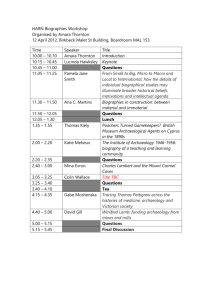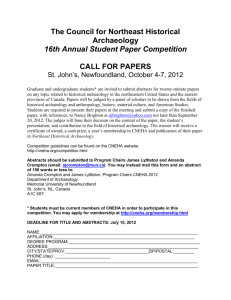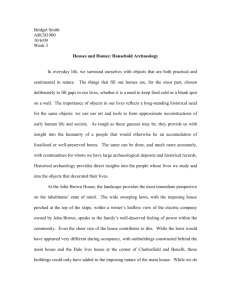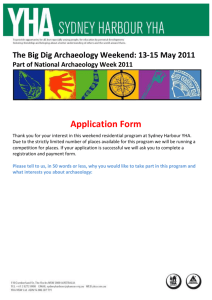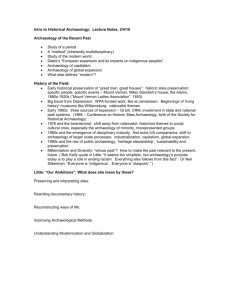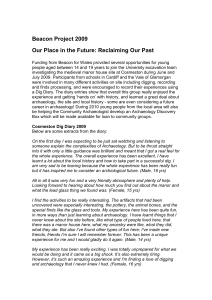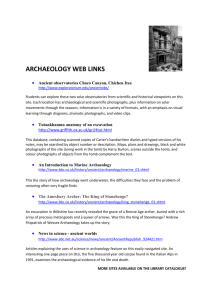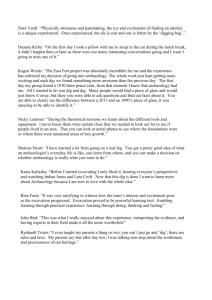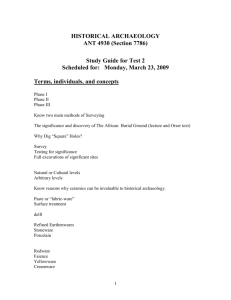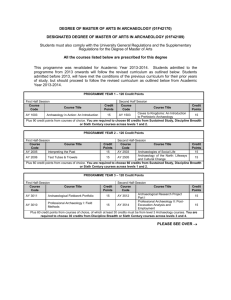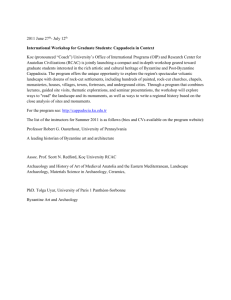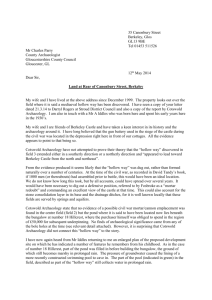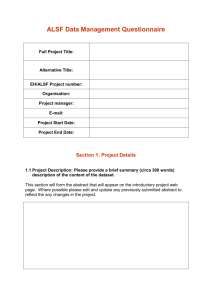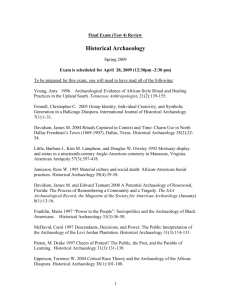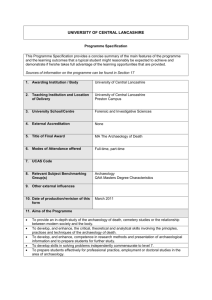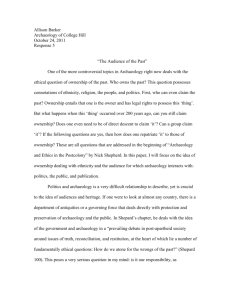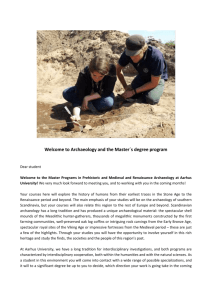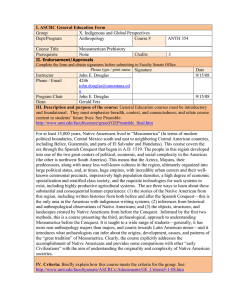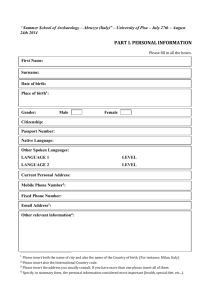David Frankel - Archaeology Transcript
advertisement
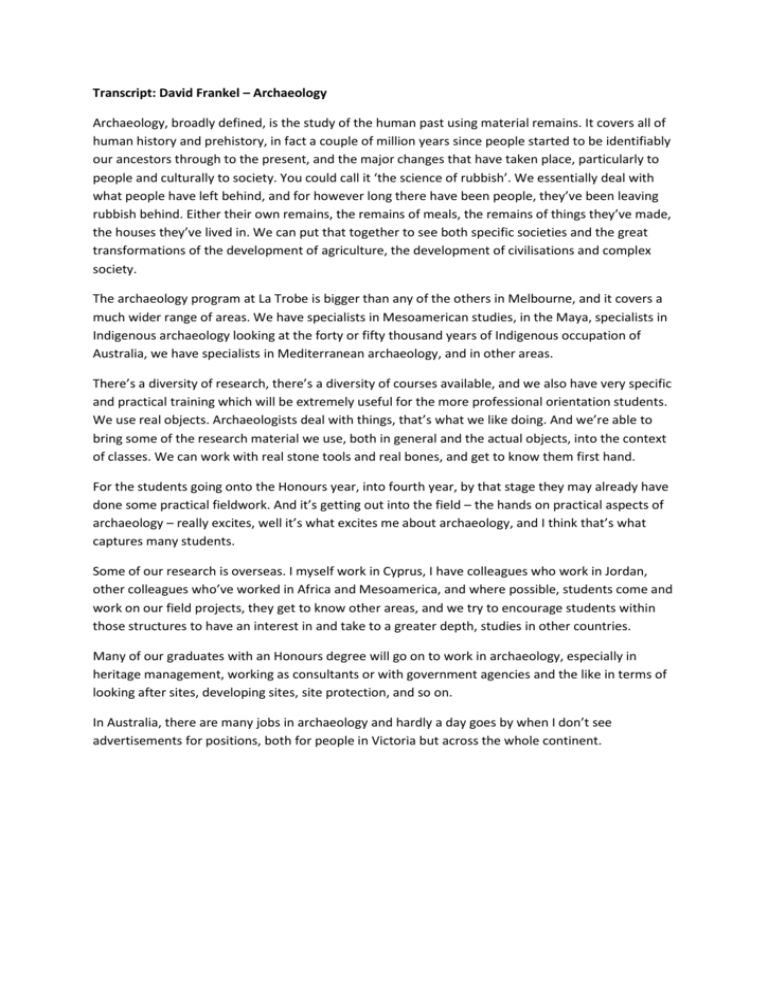
Transcript: David Frankel – Archaeology Archaeology, broadly defined, is the study of the human past using material remains. It covers all of human history and prehistory, in fact a couple of million years since people started to be identifiably our ancestors through to the present, and the major changes that have taken place, particularly to people and culturally to society. You could call it ‘the science of rubbish’. We essentially deal with what people have left behind, and for however long there have been people, they’ve been leaving rubbish behind. Either their own remains, the remains of meals, the remains of things they’ve made, the houses they’ve lived in. We can put that together to see both specific societies and the great transformations of the development of agriculture, the development of civilisations and complex society. The archaeology program at La Trobe is bigger than any of the others in Melbourne, and it covers a much wider range of areas. We have specialists in Mesoamerican studies, in the Maya, specialists in Indigenous archaeology looking at the forty or fifty thousand years of Indigenous occupation of Australia, we have specialists in Mediterranean archaeology, and in other areas. There’s a diversity of research, there’s a diversity of courses available, and we also have very specific and practical training which will be extremely useful for the more professional orientation students. We use real objects. Archaeologists deal with things, that’s what we like doing. And we’re able to bring some of the research material we use, both in general and the actual objects, into the context of classes. We can work with real stone tools and real bones, and get to know them first hand. For the students going onto the Honours year, into fourth year, by that stage they may already have done some practical fieldwork. And it’s getting out into the field – the hands on practical aspects of archaeology – really excites, well it’s what excites me about archaeology, and I think that’s what captures many students. Some of our research is overseas. I myself work in Cyprus, I have colleagues who work in Jordan, other colleagues who’ve worked in Africa and Mesoamerica, and where possible, students come and work on our field projects, they get to know other areas, and we try to encourage students within those structures to have an interest in and take to a greater depth, studies in other countries. Many of our graduates with an Honours degree will go on to work in archaeology, especially in heritage management, working as consultants or with government agencies and the like in terms of looking after sites, developing sites, site protection, and so on. In Australia, there are many jobs in archaeology and hardly a day goes by when I don’t see advertisements for positions, both for people in Victoria but across the whole continent.


